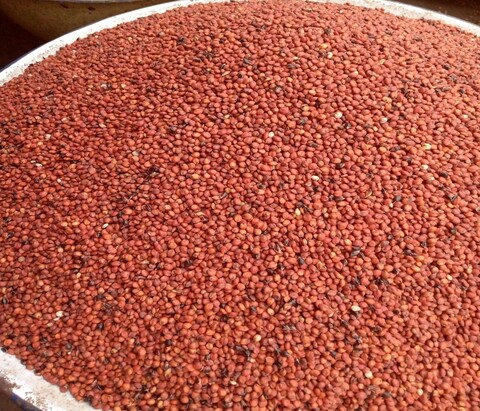- This topic is empty.
-
AuthorPosts
-
-
January 21, 2025 at 11:19 pm #543527
 Agric4ProfitsKeymaster
Agric4ProfitsKeymaster
Guinea corn, also known as sorghum, is a vital cereal crop grown widely across Africa and other parts of the world.
Understanding the determination of some physicochemical properties of guinea corn is essential for assessing its quality, nutritional value, and potential applications in food production and industrial processes.
1. Importance Of Physicochemical Properties In Guinea Corn
The physicochemical properties of guinea corn play a critical role in its usage and processing. These properties, including moisture content, ash levels, and pH, influence its shelf life, nutritional profile, and suitability for various applications.
Studying these aspects ensures that guinea corn meets the required standards for food and industrial purposes, making the determination of some physicochemical properties of guinea corn an important step in quality control.
2. Methods Used To Determine Physicochemical Properties
Several methods are employed to analyze the physicochemical properties of guinea corn. Techniques such as proximate analysis are used to measure moisture, ash, protein, and carbohydrate content.
Instruments like pH meters and refractometers are used to determine acidity and other functional properties. These methods ensure precision in the determination of some physicochemical properties of guinea corn, enabling accurate assessment.
3. Key Physicochemical Properties Of Guinea Corn
The main physicochemical properties of guinea corn include its moisture content, protein levels, starch composition, and ash content.
These factors influence its texture, taste, and nutritional value. For instance, high moisture content can lead to spoilage, while adequate protein and starch levels enhance its utility in food and beverage production.
The determination of some physicochemical properties of guinea corn highlights these critical attributes, providing insights into its quality.
4. Applications Of Physicochemical Analysis In Industry
The analysis of guinea corn’s physicochemical properties is essential for various industrial applications. In the food industry, these properties guide its use in baking, brewing, and snack production. Additionally, guinea corn is utilized in producing bioethanol and other industrial products.
Understanding the determination of some physicochemical properties of guinea corn allows industries to optimize its processing and enhance product quality.
5. Challenges In Assessing Physicochemical Properties
Although crucial, determining the physicochemical properties of guinea corn can present challenges. Inadequate access to advanced equipment, variability in crop quality due to environmental factors, and inconsistencies in analysis techniques can affect results.
Addressing these challenges is essential for improving the reliability of the determination of some physicochemical properties of guinea corn and ensuring its broader application.
The determination of some physicochemical properties of guinea corn is a key aspect of understanding its nutritional and functional potential. From assessing its moisture and protein content to exploring its industrial applications, these studies provide valuable insights.
By overcoming challenges and adopting accurate analysis methods, guinea corn’s value can be maximized, contributing to its role as an essential crop in food security and industry.
Read Also: The Guinea Corn Inflorescence: Economic Importance, Uses, and By-Products
-
-
AuthorPosts
- You must be logged in to reply to this topic.






